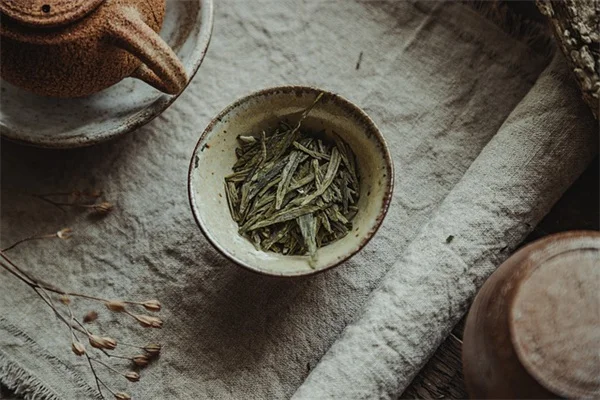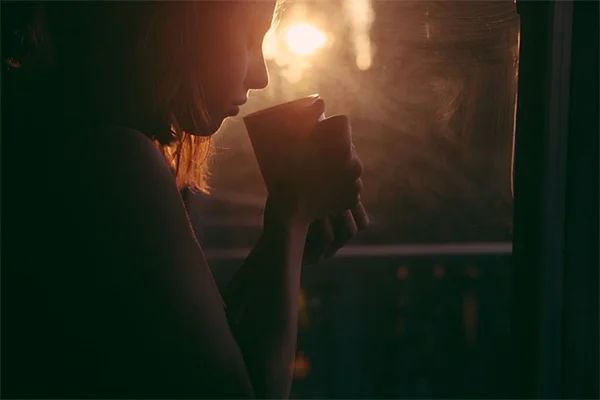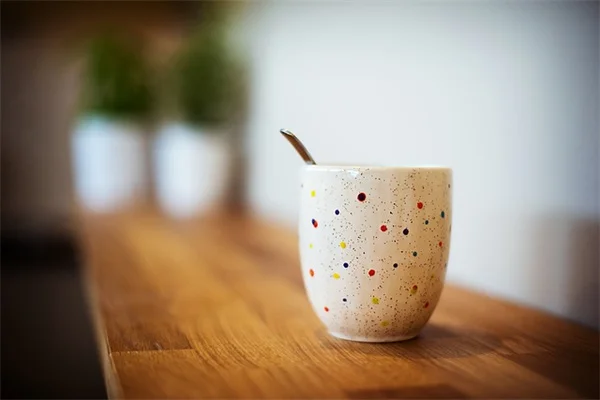Does Vanilla Flavoring Expire? Discover the Truth About Shelf Life and Storage Tips!
Does vanilla flavoring expire? The short answer is, no, vanilla flavoring doesn’t exactly expire in the traditional sense. Instead, it gradually loses its potency over time. Think of it like a favorite song that you’ve played too many times — it’s still there, but it doesn’t hit quite the same anymore. If you’re wondering about that bottle of vanilla extract you’ve had since college, it’s likely still safe to use, but it might not deliver the same flavor kick as when it was fresh. In this article, we’ll dive into everything you need to know about the shelf life of vanilla, how to tell if it’s still good, and some creative uses for aging vanilla. So, stick around as we explore the sweet world of vanilla flavoring together! 🍦
E.g. :Does Ramen Expire? Discover the Truth About Ramen Noodle Shelf Life!
- 1、Vanilla Flavoring 101: Everything You Need to Know 🍦
- 2、Does Vanilla Really Expire? Let's Settle This 🕵️♀️
- 3、Storing Vanilla Like a Pro 🏆
- 4、When Vanilla Goes Bad: What To Do 🤔
- 5、Vanilla FAQs: Your Burning Questions Answered 🔥
- 6、FAQs
Vanilla Flavoring 101: Everything You Need to Know 🍦
The Sweet Story Behind Vanilla
Did you know vanilla comes from orchids? That's right - those beautiful flowers produce the vanilla beans we love! Real vanilla extract contains just two ingredients: vanilla beans and alcohol. The alcohol acts as a natural preservative, which is why pure vanilla lasts so long. On the other hand, imitation vanilla uses synthetic vanillin, typically made from wood pulp or other plant materials. I always recommend splurging on the real stuff when you can - the flavor difference is night and day!
Natural vs. Artificial: What's the Difference?
Let's break it down with a simple comparison:
| Feature | Pure Vanilla Extract | Imitation Vanilla |
|---|---|---|
| Ingredients | Vanilla beans + alcohol | Synthetic vanillin + additives |
| Shelf Life | Indefinite (if stored properly) | 2-3 years |
| Flavor Profile | Complex, rich, nuanced | One-dimensional, strong |
Here's a fun fact: professional bakers often use both types in recipes! The pure extract provides depth, while the imitation gives that bold vanilla punch. Try this trick in your next batch of cookies!
Does Vanilla Really Expire? Let's Settle This 🕵️♀️
 Photos provided by pixabay
Photos provided by pixabay
The Truth About Vanilla Shelf Life
Here's the scoop: vanilla doesn't "expire" like milk or eggs. Instead, it loses potency over time. Think of it like a battery slowly losing charge. That bottle in your grandma's cupboard from 1998? Probably still safe to use, but it won't pack the same flavor punch.
But wait - does this apply to all vanilla products? Not exactly! Pure vanilla extract's high alcohol content makes it practically immortal when stored correctly. Imitation vanilla, however, does have a more limited lifespan of about 3-5 years.
How to Tell If Your Vanilla Has Gone Bad
Your senses are the best tools here:
- 👃 Smell test: Fresh vanilla should smell sweet and inviting. If it's sour or funky, toss it!
- 👀 Visual check: Pure vanilla should be clear (no cloudiness) with a deep brown color
- 👅 Taste test: A tiny drop should taste pleasantly vanilla-y, not bitter or "off"
Pro tip: If you see floating particles or the liquid has separated, it's definitely time for a new bottle. I learned this the hard way when my famous vanilla cupcakes came out tasting like sadness!
Storing Vanilla Like a Pro 🏆
The Perfect Vanilla Environment
Want your vanilla to last forever (or close to it)? Follow these simple rules:
- 🌡️ Keep it cool - avoid storing near ovens or stoves
- 🌑 Keep it dark - sunlight is vanilla's enemy
- 🔒 Keep it sealed - oxygen exposure degrades flavor
- 🍶 Glass is best - plastic can absorb flavors over time
Here's a question I get all the time: "Can I refrigerate vanilla?" While you can, it's not necessary. The alcohol prevents bacterial growth, so room temperature in a dark cabinet works perfectly.
 Photos provided by pixabay
Photos provided by pixabay
The Truth About Vanilla Shelf Life
If you're a vanilla enthusiast like me, consider these fun storage ideas:
- Use amber glass bottles to block light while looking fancy
- Label bottles with purchase dates (a sticky note works fine!)
- For bulk buyers, divide into smaller bottles to minimize air exposure
Fun fact: I keep my "good" vanilla in a special spice drawer away from heat sources, while my everyday baking vanilla lives in an easy-access cabinet. This system has served me well for years!
When Vanilla Goes Bad: What To Do 🤔
Is It Still Safe to Use?
Here's the good news: expired vanilla won't make you sick. The alcohol content in pure extract prevents bacterial growth, and imitation vanilla's chemical composition makes it very stable. However, the flavor quality will decline over time.
But wait - how much flavor loss are we talking about? Studies show vanilla extract retains about:
- 90% flavor after 5 years
- 75% flavor after 10 years
- 50% flavor after 20 years
So that ancient bottle from your wedding registry? It might still work, but you'll need to use more to get the same flavor impact.
Creative Uses for Old Vanilla
Don't toss that old vanilla just yet! Here are some clever ways to use it:
- 🛁 Add to homemade bath products (vanilla sugar scrubs are amazing!)
- 🕯️ Make vanilla-scented candles or potpourri
- ☕ Add a few drops to coffee grounds before brewing
- 🧴 Mix with water for a natural room spray
My personal favorite? Adding a teaspoon to my mop water for a fresh-smelling kitchen floor. Who knew cleaning could smell so delicious?
Vanilla FAQs: Your Burning Questions Answered 🔥
 Photos provided by pixabay
Photos provided by pixabay
The Truth About Vanilla Shelf Life
Q: Why is real vanilla so expensive?
A: Vanilla orchids only bloom one day per year and must be hand-pollinated! The entire production process is incredibly labor-intensive, which drives up costs.
Q: Can I make my own vanilla extract?
A: Absolutely! Just soak vanilla beans in vodka for 6-12 months. It makes a fantastic homemade gift too!
Q: Does vanilla flavoring contain gluten?
A> Pure vanilla extract is naturally gluten-free. Some imitation brands may contain additives, so always check labels if you're sensitive.
Vanilla Hacks You'll Love
Try these professional tricks in your kitchen:
- Add vanilla to savory dishes like barbecue sauce for depth
- Combine with citrus in desserts for a bright flavor contrast
- Use vanilla pod scraps to infuse sugar or salt
Here's one of my favorite unexpected uses: a drop of vanilla in hot chocolate takes it from good to "oh my goodness!" Try it tonight - you can thank me later!
When it comes to understanding does vanilla flavoring expire, it’s clear that the answer is a bit more complex than a simple yes or no. As we've learned, pure vanilla extract can last indefinitely if stored properly, thanks to its high alcohol content. However, imitation vanilla has a shelf life of about 2-3 years. It's essential to keep an eye on your vanilla and use your senses to determine its freshness—smelling, seeing, and tasting can help you avoid any unpleasant surprises in your baking. Remember, even if your vanilla has lost some potency, it’s still safe to use, making it a versatile ingredient in your pantry.
As we wrap up, I encourage you to explore the world of vanilla further. Whether you’re a baking novice or a seasoned pro, experimenting with both pure and imitation vanilla can elevate your recipes to new heights. If you have any old bottles sitting around, don’t just toss them; think creatively about how to use them. I’d love to hear your thoughts and experiences with vanilla flavoring—feel free to drop a comment below or share your favorite vanilla-based recipes with us! Together, let’s keep the sweet flavor of vanilla alive in our kitchens! 🍰
E.g. :Can I use vanilla extract after it expires? Will it go bad? : r/Baking
FAQs
Q: What is the difference between pure vanilla extract and imitation vanilla?
A: The main difference lies in their ingredients. Pure vanilla extract is made from vanilla beans and alcohol, giving it a complex and rich flavor. On the other hand, imitation vanilla contains synthetic vanillin and additives, resulting in a one-dimensional taste. While both can be used in recipes, I recommend using pure vanilla for the best flavor, especially in baked goods where vanilla is a key ingredient.
Q: How should I store my vanilla to keep it fresh?
A: To keep your vanilla fresh, store it in a cool, dark place away from heat sources like ovens or stoves. It's best to keep it sealed in a glass bottle, as plastic can absorb flavors over time. While refrigeration is not necessary due to the alcohol content preventing bacterial growth, if you want, you can refrigerate it. Just remember, room temperature in a dark cabinet works perfectly!
Q: Does vanilla really expire, and how can I tell if it's gone bad?
A: Vanilla doesn't technically expire like perishable foods, but it can lose potency over time. You can tell if your vanilla has gone bad by using your senses. If it smells sour, looks cloudy, or tastes bitter instead of pleasantly vanilla-y, it's time to toss it. A good rule of thumb is to check for floating particles or separation in the liquid, which indicates it's no longer good to use.
Q: Can I use expired vanilla in my recipes?
A: Yes, you can use expired vanilla! The alcohol in pure vanilla extract prevents it from going bad in a way that makes you sick. However, keep in mind that it may have lost some flavor potency over time. If you have an old bottle, you might need to use a bit more to achieve the desired flavor in your recipes.
Q: What are some creative uses for old vanilla?
A: Don't throw away that old vanilla! You can use it in various delightful ways. Try adding it to homemade bath products like sugar scrubs, making vanilla-scented candles, or infusing it into coffee grounds before brewing. One of my favorite uses is mixing it with water for a natural room spray. These creative uses give your old vanilla a second life and keep your home smelling wonderful!






